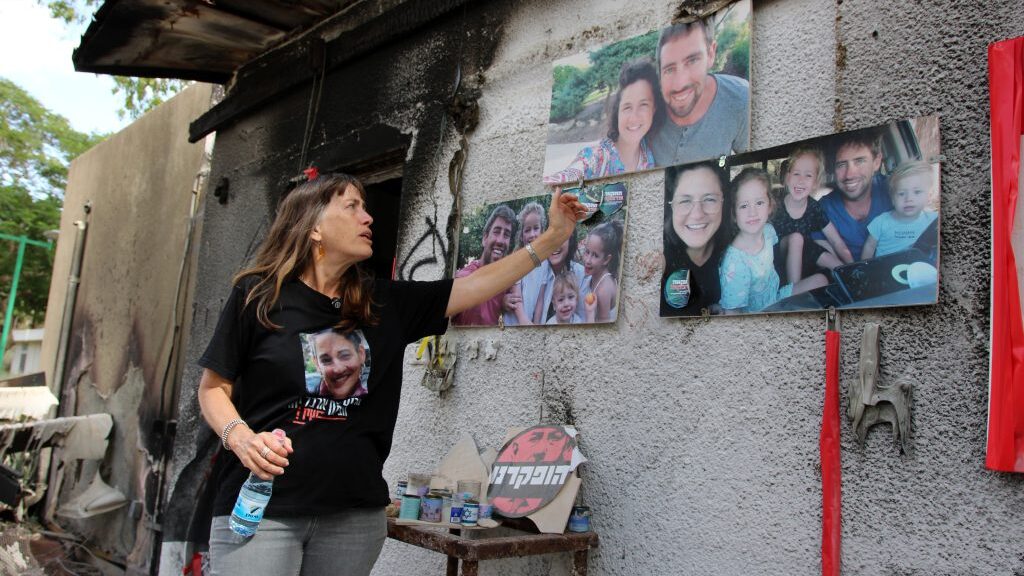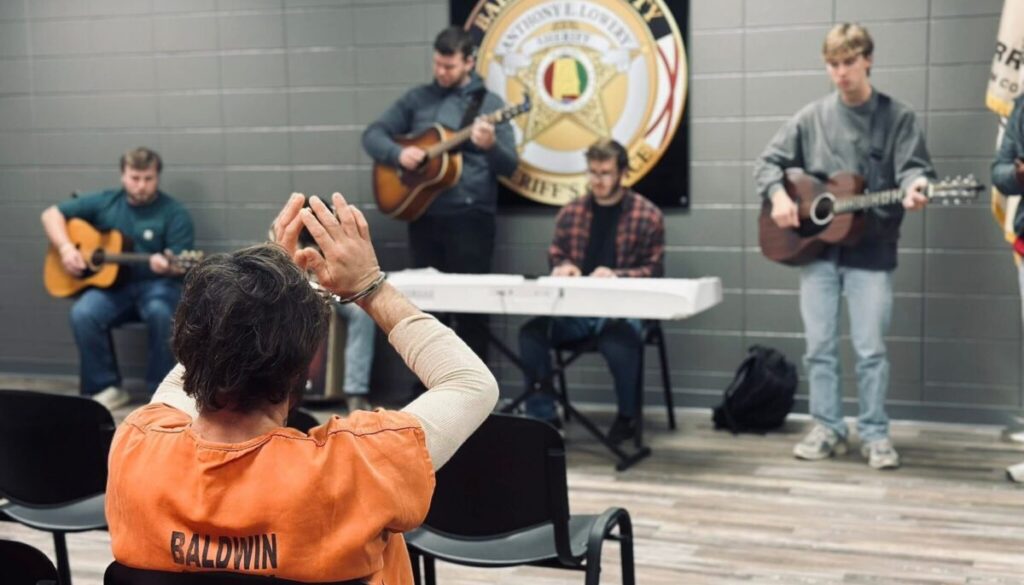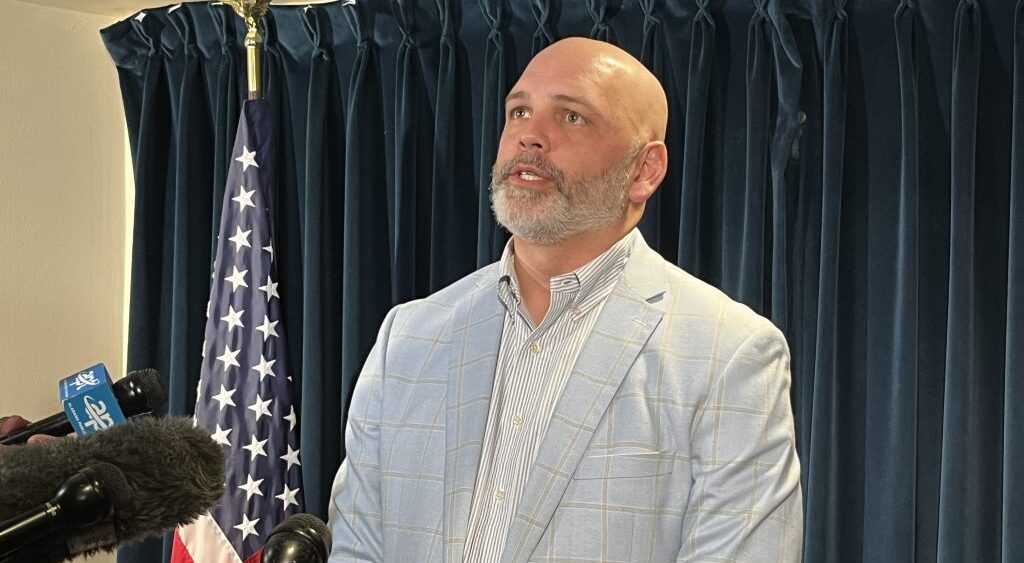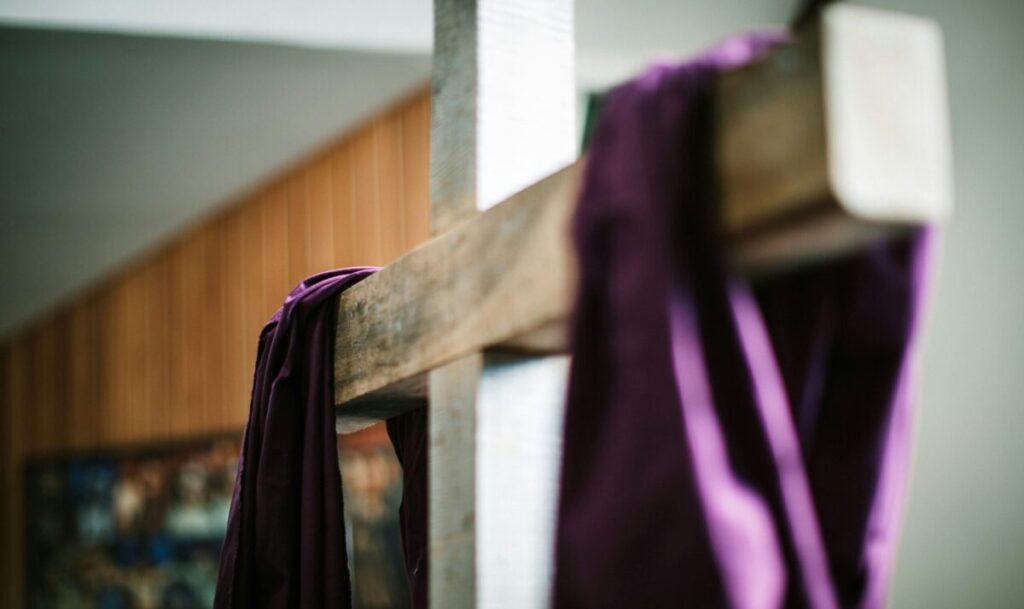One year after Hamas militants launched a coordinated attack against Israel that killed nearly 1,200, wounded 3,400 and saw the capture of 251 hostages, Israeli citizens, advocates and military officials remain divided on a path forward.
“Ladies and gentlemen, we are a country in a trauma,” said Tal Rabina, head of the Israel Office for the European Jewish Association, welcoming a press delegation in Tel Aviv on Sept. 15, to which Alabama Daily News was invited to take part in.
“There’s no one in Israel that doesn’t know someone who was murdered, someone who was kidnapped, someone who was evacuated from their house. And if there is such, their son, brother, nephew is in the reserve, whether in Gaza or the northern border.”
‘Why us?’
Alabama Daily News was invited to attend a five-day media trip to Israel where the newly formed American Middle East Press Association — a nonprofit, sister organization to the Europe Israel Press Association — gave ADN and 15 other outlets a guided tour across Israel, along with the opportunity to speak with Israeli citizens, advocates and military officials.
One such citizen was Irit Lahav, a longtime resident of the Nir Oz kibbutz — a kibbutz being an Israeli communal settlement community — in southern Israel, which sits just over a mile away from the Israeli-Gaza border. Nir Oz was among the communities attacked on Oct. 7, an attack that led to as many as 180 of the community’s 400 residents being killed or abducted.
“When I’m hiding in my safe room and we are being attacked, I’m thinking to myself, why us?” Lahav said, who survived the attack after barricading herself and her daughter in a safe room using a vacuum cleaner and rolling pin.
Lahav … recounted how she regularly drove Palestinians to Israeli hospitals prior to the Oct. 7 attack and described how her view of Palestinians has changed over the course of the past year.
“I don’t think anymore that there are innocent people,” she said. “I used to think that innocent people and a few bad Hamas; now, I don’t think so, I think the whole population. All Gaza was supporting and doing this, 900 terrorists were here, that includes women and teenagers.”
Lahev’s contempt for the Palestinians as a whole was shared by a majority of the Israeli advocates and citizens ADN spoke to. However, what path the Israeli government should chart going forward is what largely divided — and continues to divide — Israeli society.
“I think we need to give all of the Palestinians and get all of the hostages back right now,” she said. “We are wasting money and effort holding all these Palestinians in Israel.”
Hostages
While approximately 97 of the 251 abducted Israeli hostages remain in captivity, Israel is currently holding an estimated 9,500 Palestinians according to estimates from the Addameer Prisoner Support and Human Rights Association, with around 3,660 being held without criminal charges.
Lahev said she is hoping for the United States to pressure Israeli Prime Minister Benjamin Netanyahu — who she criticized harshly for prioritizing the safety of Israeli settlers in the West Bank — into accepting a ceasefire deal and an exchange of all hostages and prisoners on both sides of the conflict.
There are currently more than 500,000 Israeli settlers in the occupied West Bank across well over 100 settlement communities, which are deemed illegal under international law.
“(We have a) very right wing government, and they care more about the settlers rather than the leftish (kibbutz) along this border,” she said.
Military official’s perspective
About 20 miles north of Nir Oz on Gaza’s northern border is the Netiv HaAsara moshav — a moshav being another type of Israeli settlement without some of the communal and shared ownership aspects — where Brigadier General Amir Avivi shared a different perspective as to what the Israeli government should do moving forward.
“What is a ceasefire?” Aviv said when asked what his position was on pursuing an exchange of hostages through a ceasefire deal.
“We need to destroy Hamas, we need to bring back the hostages; there is no ceasefire until the complete surrender of Hamas in Gaza and all our hostages returned.”
Furthermore, Avivi argued that it was necessary for Israel to invade and occupy Southern Lebanon to destroy Hezbollah — the Lebanese political party and militant group — before it could guarantee the return of hostages held in Gaza.
While Hezbollah is not holding any Israeli hostages, Avivi argued on behalf of invading Lebanon — his comments made Sept. 16, just 15 days before Israel launched its invasion on Oct. 1 — as a means to ensure the safety of all of Israel.
“We need to be on the other side of the border, we cannot reach winter without Israeli soldiers being inside South Lebanon and securing the border in order to bring back our citizens,” he said.
“We need to conquer all of South Lebanon, we need to destroy Hezbollah and all its positions in South Lebanon, and we need to hit all Hezbollah capabilities all over Lebanon.”
Thoughts on Lebanon
The necessity of Israel to invade Lebanon to secure the safe return of the hostages was not shared among all Israeli military officials. Major General Israel Ziv, for instance, told ADN that in his view, an invasion of Lebanon was a mistake.
“For Israel now to go to two open fronts … strategically, in my opinion it’s a mistake,” Ziv said.
Furthermore, Ziv said increasing instances of violence propagated by Israeli settlers only heightened tensions between Hamas, Hezbollah and Israel, and thus, prolonged the conflict and the release of the hostages.
“The Jewish extremists are using the situation to flame the territory; the terror acts, the provocation, whatever they do,” he said.
More than a hundred miles north of Netiv HaAsara lies Matzuva, a kibbutz right along the Israeli-Lebanese border, where on Sept. 17, Ishay Efroni, head of security for the community, said his only problem with the prospect of invading Lebanon was that it would be “10 months too late.”
“It’s going take Israel 10 minutes to bring Lebanon back 30, 40 years; (destroy) all the power stations, all the bridges, there’s a big dam in Quaraoun Lake that we can bomb it,” Efroni said. “If we do that, they’re not going to pass anywhere.”
More than 80,000 Israelis have been displaced from Northern Israel due to rocket fire from Hezbollah, among them residents of Efroni’s community of Matzuva. Efroni gave reporters a tour of his mostly-abandoned community, which included unoccupied homes and an emptied swimming pool.
Efroni’s support for invading Lebanon was shared, at least in part, by Lt. Colonel Dotan Razili, a tactical commander, who took reporters to the northernmost edge of Israel’s border with Lebanon.
“The solution can go both ways; it can go to some kind of a diplomatic agreement,” Razili said.
“The other option is to maneuver into Lebanon, push back Hezbollah at least to the Litani River. We can do it, we can do it in an hour’s notice, a day’s notice, it’s ready. Everybody knows what they need to do.”
Iran’s role
Others, such as Sarit Zehavi, founder and president of the Alma Research and Education Center, advocated for further escalations as a means to bring peace and stability to the region, including the bombing of Iran’s nuclear facilities.
Speaking at the Alma facility in Northern Israel, Zehavi, former Israel military intelligence, tied Hamas’ Oct. 7 attack directly to Iran, and said that the international community should support Israel’s efforts to neutralize Iran’s nuclear capabilities.
“I strongly believe that there was a decision in Iran to launch the campaign that they call ‘unification of fronts,’ and maybe there was a disagreement about the small details, whether it was Oct. 7, or last week somebody in Lebanon said Oct. 25, or Passover the year before,” Zehavi said.
“It’s very important that the international community will be with us. I strongly believe that the Iranian Islamic Republic is a true problem for everybody, not only for Israel, and that’s why we should walk together against this true problem.”
Plean for iternational support
The need for international support was a constant theme among the Israeli officials and advocates ADN spoke to, and is a key pillar in the mission of the Forum Family of Hostages, an organization established Oct. 8 with one mission: to see the return of all Israeli hostages.
Daniel Shek, head of the organization’s diplomatic department, spoke to reporters on Sept. 18 at the Forum’s office in downtown Tel Aviv, and said that the divisions among Israeli society had reached a tipping point since Oct. 7.
“There is the issue of the ongoing occupation and unresolved conflict with the Palestinians, which has so much sunk into Israeli society and politics that it’s a constant background of what has divided the country politically,” Shek said.
That divide, Shek said, has largely served against the interests of the remaining hostages. While he did not speculate as to whether or not that divide could eventually be resolved, Shek said the issue of the occupied territories and Israel’s relationships with neighboring countries continues to be a breaking point among Israeli society.
“Although it’s not unusual or unique for Israel that left and right are no longer differentiated only by socioeconomic ideology like it used to be, I think in Israel, it’s completely an issue of how you see the future of the territories and the future of our integration into this region,” he said. “That is what differentiates left and right in Israel.”
‘Day after’
As for the so-called “day after,” or plan for Palestine at the conclusion of the war, Israeli advocates and officials were equally divided.
Ziv, the Israeli military reservist, said that a two-state solution — keeping Palestine and Israel divided — was necessary to achieve peace, describing a one-state solution — establishing a single state encompassing Israel, Gaza and the West Bank — as “suicidal.”
“Politically, if you ask me, yes, I believe in separation, absolutely,” Ziv said. “For Israel to go to one-state solution, it’s catastrophic, it’s suicidal.”
Lahav suggested that the more than 2.1 million Gaza residents could be forcibly relocated to artificial islands constructed by the United Arab Emirates.
“My daughter was suggesting, she said maybe the Emirates with their expertise of building in the sea, a neighborhood in the sea, maybe they can help doing that, artificial islands, so that they have more space,” Lahev said.
“Plus, they will not be able to dig tunnels underneath. So it will be two things; they will be rich, and they will not be able to dig tunnels under, so I think it’s not an imaginary idea, I think it’s one of the options.”
Avivi, the Israeli brigadier general, instead suggested that nothing short of a full occupation of Gaza would be the only way to ensure a lasting peace between the two peoples, an occupation that would include “full freedom of operation in the Gaza Strip,” a reeducation program for its citizens, and complete control of the border between Gaza and Egypt.
Alabama legislator’s perspective
Somewhere in the middle of these perspectives lies the position of Alabama’s own Rep. Phil Ensler, D-Montgomery, the Legislature’s only Jewish lawmaker and co-chair of the Alabama-Israel Legislative Caucus.
While his last trip to Israel was in 2012, Ensler had planned to visit the country on Oct. 11 of 2023, before ultimately canceling his trip in the wake of the Oct. 7 attack. Still, Ensler maintains close relationships with friends and family in Israel, telling ADN Sunday that to him, the violence “to me is not just some foreign conflict.”
“As a Jewish person, as a supporter of Israel, but someone who cares about humanity in general, I want to see peace, and I think that most Jewish people want to see peace,” Ensler said.
“The war is horrific, the loss of life is horrific, but the end goal has to be a lasting peace, meaning that Hamas can no longer do what they have done.”
Prefers dual approach
As to what path the Israeli government should chart going forward to achieve that end, Ensler said that a combination of both diplomatic and military solutions would be ideal.
“I do think militarily going after Hamas certainly makes sense,” he said.
“But to that extent, I think negotiating for a hostage release, and — I wish it weren’t the case — doing an exchange where Palestinian prisoners are exchanged for the Israeli and American hostages, that you can do both the diplomatic and military approach.”
Latest stats
As of September, around 1,700 Israelis have been killed in the conflict according to the Israel Ministry of Foreign Affairs, and roughly 42,000 Palestinians have been killed, including more than 16,700 children, per estimates by the Gaza Ministry of Health, estimates that Israeli intelligence often rely on and deem generally accurate.
The world-renowned peer-reviewed medical journal The Lancet, however, estimates that the death toll on the Palestinian side could be much greater, potentially as high as 186,000, or possibly higher.
An International Criminal Court prosecutor in May applied for arrest warrants for leaders of both Palestine and Israel, though the applications are still being deliberated by the ICC and have yet to be granted.
On the Palestinian side, arrest warrant applications were submitted for Hamas leaders Yahya Sinwar, Mohammed Diab Ibrahim Al-Masri, and Ismail Haniyeh, though Haniyeh was assassinated back in July, likely by Israeli intelligence. The applications were collectively over crimes against humanity related to the killings and abductions on Oct. 7.
The prosecutor also applied for arrest warrants for Netanyahu, Israel’s prime minister, and Israeli Minister of Defense Yoav Gallant for Israel’s execution of the war against the Palestinians. The applications include charges of using starvation as a method of warfare and directly targeting civilians.
EDITOR’S NOTE — This story was written by Alexander Willis and originally published by Alabama Daily News. It is reprinted with permission.






Share with others: